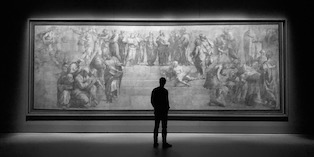Podcast Profile: History and Philosophy of the Language Sciences
 Site • RSS • Apple Podcasts
Site • RSS • Apple Podcasts58 episodes
2019 to 2026
Median: 26 minutes
Collection: Philosophy

 Site • RSS • Apple Podcasts
Site • RSS • Apple PodcastsDescription (podcaster-provided):
History and Philosophy of the Language Sciences explores the history of the study of language in its varied social and cultural contexts.Themes and summary (AI-generated based on podcaster-provided show and episode descriptions):
➤ history of linguistics and language philosophy • key figures and schools: Saussure, Prague Circle, Neogrammarians, Chomsky • semiotics, meaning, universals • typology, sociolinguistics, contact/creoles • documentation, archiving, language revival • politics and ideologyThis podcast examines the history and philosophy of the language sciences by tracing how ideas about language have developed in specific intellectual, social, and political contexts. Much of the content is presented through interviews with linguists, historians, and philosophers of language, alongside some explanatory episodes that reconstruct key debates and methodological shifts.
Across the episodes, recurring themes include the emergence and contestation of major linguistic frameworks such as historical-comparative linguistics, Neogrammarian approaches and their critics, structuralism (including Saussurean and Prague Circle traditions), functionalism, and the rise of American linguistics from Boas through Sapir and Bloomfield to later mid‑20th‑century disputes. The podcast also returns frequently to questions about what counts as evidence and explanation in language study, including relationships between linguistic theory and psychology (e.g., behaviourism), philosophy (e.g., logical positivism, pragmatism and semiotics), and cognitive accounts of signs, meaning, and concepts.
Another strand highlights how scholarly networks, institutions, and schools of thought form and persist, including citation practices and disciplinary lineages. The show also addresses interactions between linguistics and wider society: politics and ideology in the discipline, scholarship under authoritarian regimes, and the political engagements of prominent language scholars. There is attention to applied and socially grounded work as well, including language documentation and archiving, linguistic typology, contact linguistics (pidgins, creoles, mixed languages), multilingual lives, and language reclamation and revival. Overall, the podcast offers a historically oriented survey of language science through people, texts, controversies, and changing research programs.